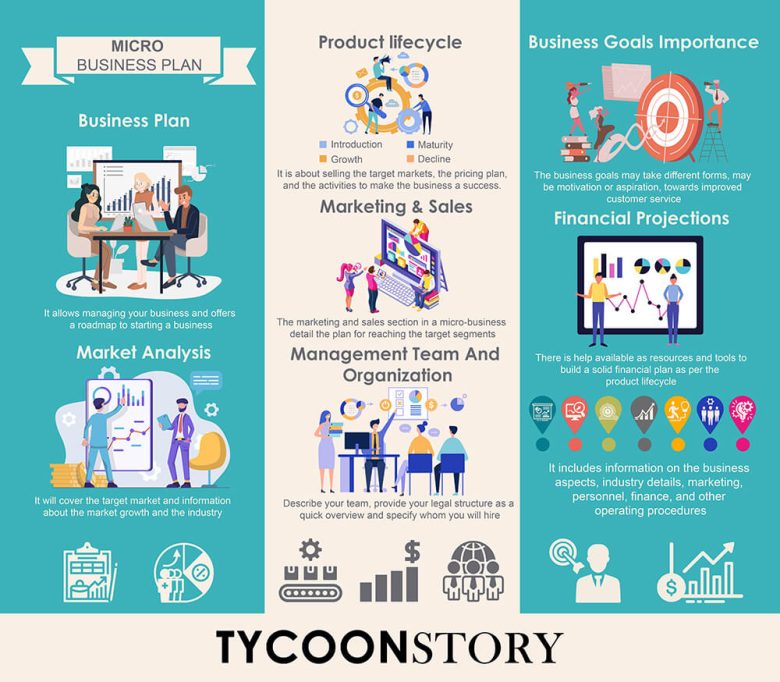Plans vary with every business type and size. However, here are 7 steps to create a micro business plan.
7 steps to create a micro business plan
1. Micro Business Plan
A micro business plan is the same as a small business plan. It allows managing your business and offers a roadmap to starting a business. The plans are for the first five years and into the future. The micro-business plan includes what a business will do, and the way it will earn money with its products or services. It specifies to whom it will sell its produce.
2. Market analysis
This is one of the important parts of a micro business plan displaying your potential customer’s information. It will cover the target market and information about the market growth and the industry. Here you may describe the target market and be specific. The market analysis explains the growing market and the way your micro business takes advantage to set it’s foot.
3. Product lifecycle
The product life cycle refers to the time length that a product reaches the consumers. It means the life cycle is into four stages, introduction, growth, maturity, and decline. The product life cycle helps determine price points, advertising schedules, packaging redesigns, new product market expansion, and more. Supporting a product using these strategic methods is product life cycle management. It determines the newer products to enter the market replacing the older ones.
4. Marketing & Sales
The marketing and sales section in a micro-business detail the plan for reaching the target segments. It is about selling the target markets, the pricing plan, and the activities to make the business a success. The business plan should discuss the costs; perform market analysis and logistics of getting products onto store shelves. It should include a SWOT analysis and any potential hurdles that the business may have to overcome. It is purely optional and may be good to explain your services and products to benefit from and deal with threats.
5. Business Goals importance
It refers to the endpoint, a target to achieve for an organization in the long or short term. The business goals may take different forms, maybe motivation or aspiration, towards improved customer service. Businesses should set goals without fear, as this process has no downside. The goals give business direction and help measure results. Yet, to know the business goal’s success, one should measure the success, set new goals, ensure leadership cohesion, and reassess the goals.
6. Management Team and Organization
Your company overview must include the current business structure. Describe your team, provide your legal structure as a quick overview and specify whom you will hire. Include the bios in brief of each key team member highlighting their experiences. Show the right industry experience of the team and their background. Give each business partner’s value and mention the ownership divisions. Investors and potential lenders must be aware of the business structure before giving a loan or investment.
7. Financial projections
Finally, your micro business plan need not be intimidating to your entrepreneurs. There is help available as resources and tools to build a solid financial plan as per the product lifecycle. Include sales and revenue projects for 12 months, P&L statement, cash flow statement, and balance sheet providing your business financial health overview.
Final thought
A good micro-business plan is highly detailed. It includes information on the business aspects, industry details, marketing, personnel, finance, and other operating procedures. These business plans are specific and communicate to the employees asking for commitment from everyone.




